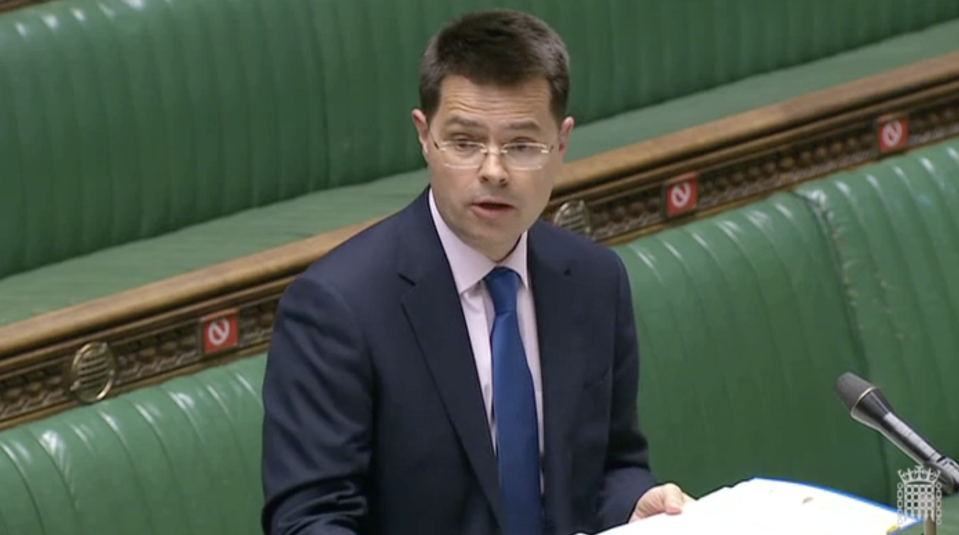MPs pass new security law amid fears it gives undercover agents 'licence to kill'

MPs have voted overwhelmingly in favour of a new security bill despite human rights charities warning it risks “authorising crimes like torture and killing”.
The Covert Human Intelligence Sources (Criminal Conduct) Bill was passed at second reading in the House of Commons on Monday night, with 182 voting in favour and just 20 voting against.
A total of 19 Labour MPs voted against the bill despite being issued with a one-line whip from the party’s leadership instructing them to abstain from voting.
The bill seeks to legitimise the controversial MI5 practice of allowing officers and informants to participate in criminal activity if the offences involved are proportionate to the evidence gained.

But its critics, including human rights charity Amnesty International, say the bill could end up “providing informers and agents with a licence to kill”.
“It is deeply alarming that the proposed law does not explicitly prohibit MI5 and other agencies from authorising crimes like torture and killing. It must be amended to do so,” Grainne Teggart, Amnesty International UK’s Northern Ireland campaigns manager, said.
“In Northern Ireland, we have seen the consequences of undercover agents in paramilitary organisations operating with apparent impunity whilst committing grave human rights abuses, including murder.
Read more: Reading terror attack: Police face 'wicked problem' of spotting terrorist among 40,000 people
“Such criminal acts do not become any less serious when placed on a legal footing.”
The government claims the bill will be compliant with the European Convention on Human Rights, and its passage has been supported by Labour.
Shadow home secretary Nick Thomas-Symonds wrote in The Independent last week that the bill would protect agents seeking to uncover “the most vile crimes imaginable” such as terrorism, drug gangs, and organised crime.
“In the course of these operations, it is inevitable that to maintain cover, covert human intelligence sources will at times need to transgress existing laws,” he added.
A number of Labour MPs broke with their party’s stance on the bill in recent days to publicly declare their opposition to the bill, including Jeremy Corbyn who said it facilitated “unnecessary and unlawful interference” in the work of human rights groups.
“I have grave concerns regarding the Covert Human Intelligence Sources Bill,” Corbyn tweeted.
“It could enable unnecessary and unlawful interference with the legitimate activities of trade unions, environmentalists, anti-racists & other campaigners. We must always stand up for human rights.”
Dawn Butler tweeted: “Tonight I voted against the Covert Human Intelligence Sources Bill. We need sufficient safeguards in the bill. It's obvious, why hasn't it been done? We have an unaccountable Government that continues to show it cannot be trusted.”
Tonight I voted against the Covert Human Intelligence Sources Bill.
We need sufficient safeguards in the bill. It's obvious, why hasn't it been done?
We have an unaccountable Government that continues to show it cannot be trusted.
My full statement👇🏾 https://t.co/nIijEGB3gh pic.twitter.com/Be0zzuAJ56— Dawn Butler MP✊🏾 (@DawnButlerBrent) October 5, 2020
Olivia Blake MP wrote: “I'm deeply concerned about the Tories' Covert Human Intelligence Sources (Criminal Conduct) Bill. Giving government bodies the power to authorise criminal conduct without judicial oversight would undermine the rule of law and erode civil liberties.”
And Zarah Sultana said: “This evening I voted against the Covert Human Intelligence Sources Bill. I can't support legislation that could give undercover state agents the licence to murder, torture and commit sexual violence.”
While Nadia Whittome tweeted: “Tonight I voted against the Covert Human Intelligence Sources (Criminal Conduct) Bill. Breaking the whip is a difficult decision which I do not take lightly. I did not become a Labour MP to break the whip; I came here to represent my constituents and that is what I did today.”

 Yahoo News
Yahoo News 